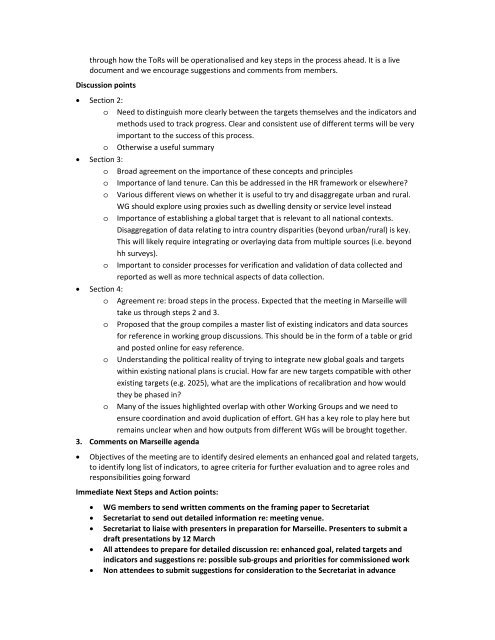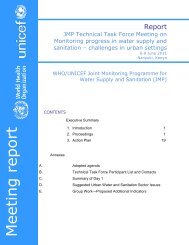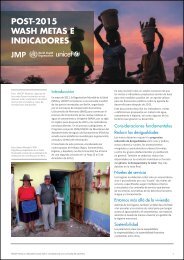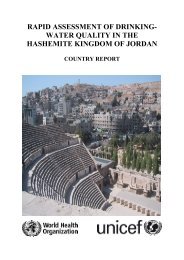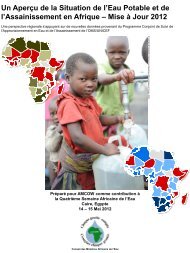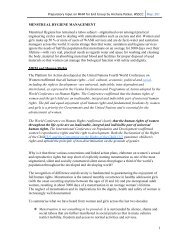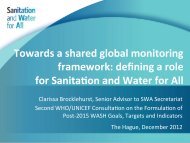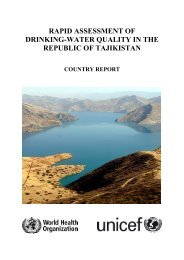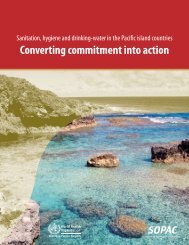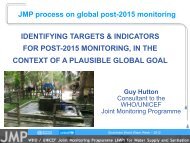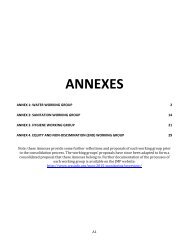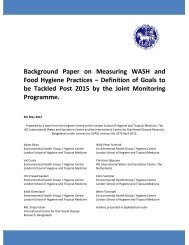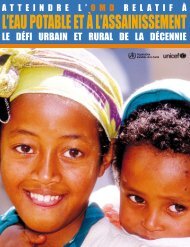Minutes of Telephone meeting 2 March 2012
Minutes of Telephone meeting 2 March 2012
Minutes of Telephone meeting 2 March 2012
You also want an ePaper? Increase the reach of your titles
YUMPU automatically turns print PDFs into web optimized ePapers that Google loves.
through how the ToRs will be operationalised and key steps in the process ahead. It is a live<br />
document and we encourage suggestions and comments from members.<br />
Discussion points<br />
Section 2:<br />
o Need to distinguish more clearly between the targets themselves and the indicators and<br />
methods used to track progress. Clear and consistent use <strong>of</strong> different terms will be very<br />
important to the success <strong>of</strong> this process.<br />
o Otherwise a useful summary<br />
Section 3:<br />
o Broad agreement on the importance <strong>of</strong> these concepts and principles<br />
o Importance <strong>of</strong> land tenure. Can this be addressed in the HR framework or elsewhere?<br />
o Various different views on whether it is useful to try and disaggregate urban and rural.<br />
WG should explore using proxies such as dwelling density or service level instead<br />
o Importance <strong>of</strong> establishing a global target that is relevant to all national contexts.<br />
Disaggregation <strong>of</strong> data relating to intra country disparities (beyond urban/rural) is key.<br />
This will likely require integrating or overlaying data from multiple sources (i.e. beyond<br />
hh surveys).<br />
o Important to consider processes for verification and validation <strong>of</strong> data collected and<br />
reported as well as more technical aspects <strong>of</strong> data collection.<br />
Section 4:<br />
o Agreement re: broad steps in the process. Expected that the <strong>meeting</strong> in Marseille will<br />
take us through steps 2 and 3.<br />
o Proposed that the group compiles a master list <strong>of</strong> existing indicators and data sources<br />
for reference in working group discussions. This should be in the form <strong>of</strong> a table or grid<br />
and posted online for easy reference.<br />
o Understanding the political reality <strong>of</strong> trying to integrate new global goals and targets<br />
within existing national plans is crucial. How far are new targets compatible with other<br />
existing targets (e.g. 2025), what are the implications <strong>of</strong> recalibration and how would<br />
they be phased in?<br />
o Many <strong>of</strong> the issues highlighted overlap with other Working Groups and we need to<br />
ensure coordination and avoid duplication <strong>of</strong> effort. GH has a key role to play here but<br />
remains unclear when and how outputs from different WGs will be brought together.<br />
3. Comments on Marseille agenda<br />
Objectives <strong>of</strong> the <strong>meeting</strong> are to identify desired elements an enhanced goal and related targets,<br />
to identify long list <strong>of</strong> indicators, to agree criteria for further evaluation and to agree roles and<br />
responsibilities going forward<br />
Immediate Next Steps and Action points:<br />
<br />
<br />
<br />
<br />
<br />
WG members to send written comments on the framing paper to Secretariat<br />
Secretariat to send out detailed information re: <strong>meeting</strong> venue.<br />
Secretariat to liaise with presenters in preparation for Marseille. Presenters to submit a<br />
draft presentations by 12 <strong>March</strong><br />
All attendees to prepare for detailed discussion re: enhanced goal, related targets and<br />
indicators and suggestions re: possible sub‐groups and priorities for commissioned work<br />
Non attendees to submit suggestions for consideration to the Secretariat in advance


